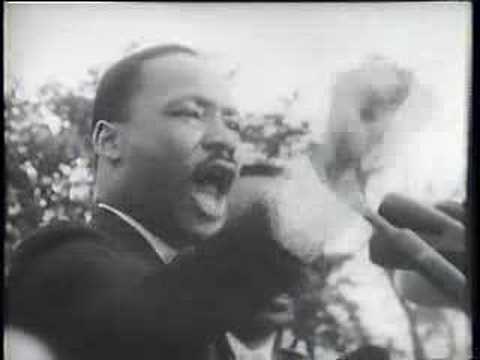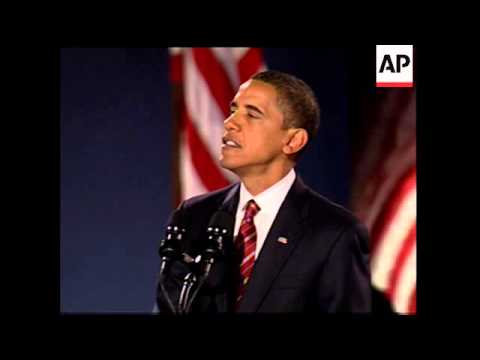Why study hypophora examples? Because seeing inspired writers and speakers use hypophora can’t help but elevate your writing.
Before we move on, let’s start with a quick definition…
Hypophora (known also as antipophora or anthypophora) is a literary device where the author poses a single question, like a rhetorical question, and then answers it.
Used in openings, transitions, and conclusions, hypophora packs power into anything you write.
Power? Yes, and to show you how, we’ll:
- Share examples of hypophora as it’s used in literature, speeches, and pop culture.
- Give you a few tips on how to work hypophora into your writing.
Ready to be inspired?
Let’s go!

Hypophora Examples from Famous Literature
Great works of literature use hypophora to make statements that are both powerful and reflective. The following examples illustrate both effects.
1. Henry IV. Part 1 by William Shakespeare
“What is honor? A word. What is in that word, honor? Air. A trim reckoning. Who Hath it? He that died o’ Wednesday. Does he feel it? No. Does he hear it? No. ‘Tis insensible then. Yes, to the dead. But will it not live with the living? No. Why? Detraction will not suffer it. Therefore, I’ll none of it. Honor is a mere scutcheon (shield). And so ends my catechism.”
In Act V, Scene 1, Shakespeare uses hypophora seven times in Fallstaff’s passionate indictment of honor.
It starts with the seemingly rhetorical question:
“What is honor?”
Taking place during the battle of Shrewsbury, Falstaff’s immortal lines ask the question that he exclusively holds the answer to:
“what good is honor to the dead?”
The dead cannot enjoy their moment, and the hero’s survivors will find honor a poor consolation in their absence.
Perhaps honor is consolation only to those who bring the war, and never have to fight it?
We’ll let you answer that rhetorical question.
2. Charlotte’s Web by E.B. White
“After all, what’s a life, anyway? We’re born, we live a little while, we die. A spider’s life can’t help being something of a mess, with all this trapping and eating flies. By helping you, perhaps I was trying to lift up my life a trifle. Heaven knows anyone’s life can stand a little of that.”
In this reflective example of hypophora, writer E.B. White weaves a moment of philosophy into a timeless children’s story.
This is a particularly poignant moment in the story — Charlotte’s question is one that burdens us all as human beings.
We take a moment to mull the question, and then rejoin the author, as though hoping a kind, tiny spider might give us the answer no one else can.
In Charlotte’s Web, this one beautiful passage dignifies everyone’s life, no matter how mundane or difficult, and lifts altruism to the rank of nobility.
Charlotte answers the the single most important question every reader, every person, asks.
Hypophora, a literary device when used skillfully, has a way of taking one’s breath away. This passage works in just that way.
Hypophora Examples from Famous Speeches
Rarely does hypophora captivate an audience more than in speech.
In the examples that follow, the question and immediate answer posed by the speaker creates an indelible moment of inspiration, hope, and resolve.
3. “How Long? Not Long!” by Martin Luther King Jr. (1965)
When citing rhetorical strategies, many cite Martin Luther King’s I Have a Dream speech…
“There are those who are asking… “When will you be satisfied?” We can never be satisfied as long as the Negro is the victim of the unspeakable horrors of police brutality.”
An epic speech by any standard. But…
King’s How Long? Not Long! speech may be even more powerful to the Civil Rights Movement…
When Reverend King gave his speech at the end of the Selma-to-Montgomery March, it was a powerful uttering of a bone short phrase — How Long? Not Long!
It turned the moment from a somber recognition of how things were for his people, to the hope of what would come from their sacrifices and suffering.
This speech demonstrates how powerfully hypophora creates change in feeling, thought and tone. With the trauma of the Bloody Sunday massacre still fresh, King begins his speech by naming the pain felt by the victims of bigotry and brutality.
But with those four words, he brings comfort and resolve, answering the question of How Long they would all have to wait.
Not long. Because no lie can live forever.
The hypophora is punctuated with citing diction of the word “lie.”
4. Barack Obama (2008)
Barack Obama’s election signified how far the U.S. had come since King delivered his speech in Montgomery.
But the question Obama asks in his political speech goes beyond hope for the future by embracing the challenges that lie ahead.
At the start of his speech, Obama references the life of Ann Nixon Cooper. A centenarian whose life bridged slavery and the Civil Rights movement.
“If my daughters should be so lucky to live as long as Ann Nixon Cooper, what change will they see?
This is our moment. This is our time — to put our people back to work and open doors of opportunity for our kids… and to those who tell us we can’t, we will respond with that timeless creed that sums up the spirit of a people: Yes, we can.
Unlike other examples of hypophora, Obama asks but one question:
“…what change will they see?”
The power of hypophora is seen in his answer, a multifaceted call to create the change that vindicates the sacrifices of those who came before them.
People like Ann Nixon Cooper, whose lifespan underscores not only that election night, but the enormity of the tasks at hand.
Hypophora Examples from Pop Culture
5. Lose Yourself by Eminem (2002)
Eminem’s gritty anthem of perseverance from the movie 8 Mile opens with a question everyone who gets their chance must answer…
“Look
If you had one shot…
To seize everything you ever wanted
One moment
Would you capture it or just let it slip?”
And then his answer follows shortly thereafter.
“Lose yourself in the music, the moment
You own it, you better never let it go
You only get one shot, do not miss your chance to blow
This opportunity comes once in a lifetime…
You can do anything you set your mind to, man
Like many who dare to dream, the question Eminem asks is not only a challenge to himself, but one that acknowledges their doubt.
What makes this song such a great example of hypophora is the intensity of his answer.
His willingness to not only own his fears, but meet them where they are. There’s strategy there, encouragement, daring himself not to choke, to grab the opportunity.
It’s advice the listener can embrace:
When overwhelmed, remember the answer within his last line.
6. The Holy Grail by Monty Python (1975)
A classic sendup of Camelot by the renowned British comedy squad, with rheoridal, political commentray and literay devices all rolled up in a muddy ball of humor.
The following hypophora example plays on Monty Python’s trademark use of irony, in this case, peasants taking a social justice run at King Arthur:
King Arthur: Well I AM King.
Peasant: Oh, that’s nice, very nice, and how’d you get that, heh? By exploiting the workers! By hanging on to outdated imperialist dogma which perpetuates the economic and social differences in our society.
Though a less weighty example of hyphora, this scene works because it poses a very pointed question followed by its own declarative answer:
What is the source of King Arthur’s power?
The exploitation of the masses, which leads only to other social ills.
The humor is evident in that the narrative is contemporary, and that it wouldn’t be expected from a peasant. Educated or not.
Smart and funny. Perfectly Monty Python.
Want to make hypophora work for you?
Yes! (see what I did there?)
Let’s work it into your own writing.
How to Use Hypophora
By now you have a sense of how hypophora can draw your audience in, how it can change the direction of your message, how it can affect energy and tone.
A single question posed to your audience is that powerful.
But… use it judiciously.
In fiction, let it begin a pivotal chapter.
Or, use it midstream to slow things down and reflect on a meaningful moment. Use it at the conclusion, to put a capstone on your story.
Hypophora is also perfect for introducing nonfiction sections, again, because of the way it induces curiosity…
What element, if one were asked, could best be called a shapeshifter? Clearly it’s…
I’d have finished that sentence had I passed chemistry, but you get the idea. That said, because nonfiction most often flows deductively, hypophora will better be used at the beginning of your sections than at the end.
As with any other literary device, know what it is, what it does, and where it belongs.
And let it happen naturally.
Hypophora Examples Are All Around You

From William Shakespeare through Barack Obama, hypophora demonstrates its timelessness as a literary and rhetorical device.
And having seen it in practice, you’re now positioned to make your work stronger.
Read great writers, listen to great political speeches, and see how hypophora is used effectively. Begin your journal entries with hypophora, and they’ll come naturally into your writing.
I’ll leave you with this bit of hypophoric inspiration — from the author of National Velvet, Enid Bagnold:
“Who wants to become a writer? And why? Because it’s the answer to everything. To ‘Why am I here?’ The streaming reason for living. To note, to create, to be astonished at nothing.”
Be well, and good luck.







